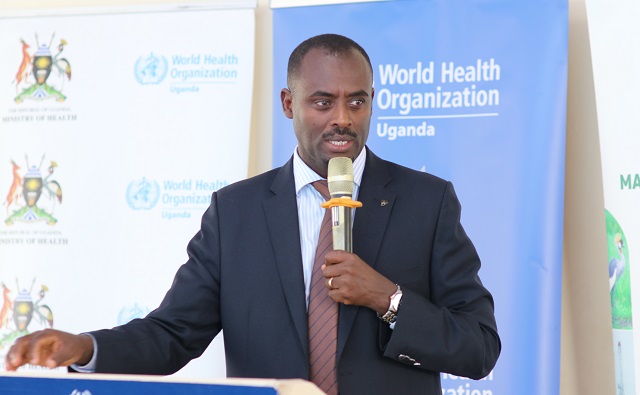
Inhalation of mercury vapour can damage the central nervous system, leading to cognitive impairment, tremors, and other neurological disorders
Kampala, Uganda | PATRICIA AKANKWATSA | Uganda is actively working towards a mercury-free healthcare sector, an important step in safeguarding public health and environmental sustainability.
Mercury, a naturally occurring heavy metal, has been utilised for centuries in various applications. However, its inherent toxicity has increased concerns about its impact on human health and the environment and is considered by the World Health Organisation (WHO) as one of the top ten chemicals of major public health concern.
Historically, healthcare settings have been a major source of mercury exposure. Mercury-containing devices, such as thermometers and blood pressure monitors, have been widely used. However, accidental spills or breakage of these devices can release mercury vapour, posing risks to healthcare workers, patients, and the environment.
Negative health concerns
Speaking at the stakeholders’ inception meeting for the Global Environment Facility (GEF) project about phasing out mercury measuring devices in healthcare on Nov.6, Dr Herbert Nabaasa, the Commissioner for Environmental Health at the Ministry of Health said that mercury exposure can have severe health consequences.
“Inhalation of mercury vapour can damage the central nervous system, leading to cognitive impairment, tremors, and other neurological disorders. Additionally, skin contact with elemental mercury can result in skin irritation and systemic toxicity.”
Dr Nabaasa added that a particularly insidious form of mercury is methylmercury, created when inorganic mercury is converted by bacteria in water bodies.
“Methylmercury bio accumulates in aquatic organisms, such as fish, and can be transferred to humans through consumption. Exposure to methylmercury, especially during fetal development, can lead to serious neurological damage, including developmental delays and impaired cognitive function.”
To mitigate these risks, many healthcare facilities worldwide have transitioned to mercury-free alternatives. These alternatives, such as digital thermometers and electronic blood pressure monitors, offer comparable accuracy and often superior performance.
Reduction in mercury emission
Through a multi-million project for phasing out mercury measuring devices in healthcare led by the United Nations Environment Programme (UNEP), with funding from the Global Environment Facility (GEF) and executed by the World Health Organization (WHO), Uganda aims to reduce mercury emissions and pollution.
The five-year project will develop and implement nationwide strategies to stop the import, export, and manufacture of thermometers and sphygmomanometers, encourage the adoption of accurate, affordable, and safe mercury-free alternatives, and improve the management of mercury-containing medical waste.
Ann Nakafeero, the Principal Biodiversity Officer at National Environment Management Authority said this project is also going to support Uganda in the development of national health system-wide strategies for phasing out the procurement and manufacture of mercury thermometers and blood pressure monitors with the implementation of national strategies to phase out the manufacture, import and export; development of designs for temporary storage of waste mercury from health care settings.
“Non-mercury alternatives are easier to use; less prone to user error and have a much longer lifetime,” Nakafeero said.
She added that NEMA on behalf of the government and as the focal institution for the Minamata Convention on Mercury, updated the NEA CAP 181 and attendant regulations among others to cover the management of mercury; prohibit the import, manufacture, use or recycling of non-electronic measuring devices including thermometers and blood pressure monitors after their phase-out date of 2020 in line with the Minamata Convention; manage sites and wastes contaminated with mercury.
The Minamata Convention on Mercury is an international treaty designed to protect human health and the environment from the adverse effects of mercury from human activity.
Adopted in 2013 and named after the Japanese city, Minamata where mercury poisoning caused severe health and environmental crises, the Convention addresses mercury throughout its lifecycle, including regulating emissions and trade, phasing out mercury use in products and processes, and addressing the safe management of mercury waste.
“It is of paramount importance that private sector, Non-Governmental Organisations (NGOs) and government sectors including procurement, customs, health, and the environment take on their role to make mercury history not only in the health care sector but in Uganda as a whole,” Nakafeero said.
According to the National Environment Management Authority (NEMA), 2018 report on the annual mercury pollution estimates equal 32,146kg per year. Out of this, 205kgs is in the disposal phase of manometers and gauges; 70kg from the incineration of wastes; 146kgs per year from Dental mercury-amalgam fillings and 21kgs from thermometers with mercury.
Dr Suraj Shrestha, the Programme Management Officer at WHO, Uganda said this project not only benefits the environment but also directly improves the well-being of healthcare workers and patients.
“By reducing exposure to hazardous mercury, we can prevent a range of health issues, including neurological disorders and developmental problems,” Dr. Shrestha said.
“We are thrilled to be at the forefront of this important initiative, working alongside UNEP and GEF to eliminate mercury from healthcare settings in Uganda; adding that we are committed to working closely with healthcare facilities and communities across Uganda to ensure a smooth transition to mercury-free alternatives.”
Dr Shrestha also said that by raising awareness, providing training, and supporting the procurement of safer technologies, we can create a lasting impact on public health and environmental protection.
Uganda and Burkina Faso are the only African countries involved in the phase-out of mercury use in healthcare.
 The Independent Uganda: You get the Truth we Pay the Price
The Independent Uganda: You get the Truth we Pay the Price



